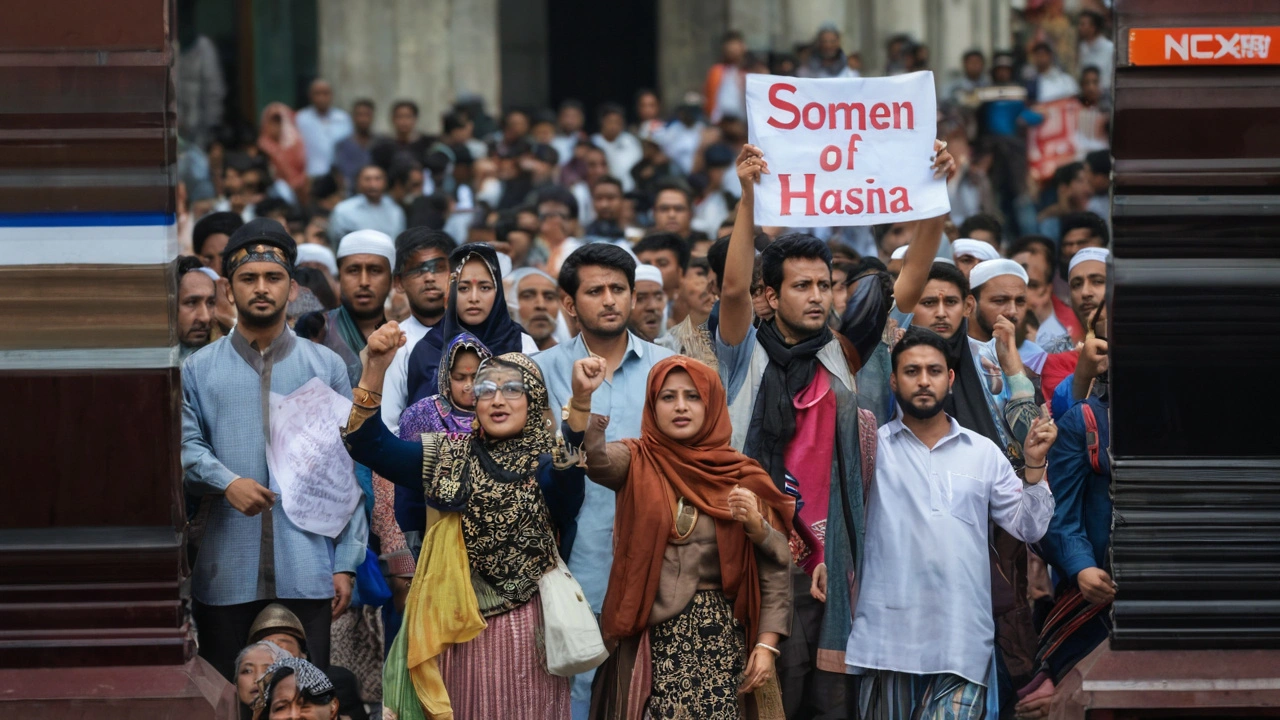Sheikh Hasina Resigns Amid Bangladesh Political Turmoil and Anti-Quota Protests
5 Aug, 2024Bangladesh’s Political Landscape in Turmoil as Sheikh Hasina Resigns
In a dramatic turn of events, Bangladesh’s Prime Minister Sheikh Hasina has been forced to resign amid massive anti-quota protests that have gripped the nation. The protests, initially sparked by discontent over the government's quota system for public sector jobs, quickly snowballed into a larger movement reflecting widespread frustration with the political status quo.
Demonstrations began when students and young job seekers took to the streets, demanding an end to what they perceive as an unjust quota system that reserves a significant portion of government jobs for specific groups. The movement rapidly gained momentum, drawing in thousands of protesters across major cities. Despite initial peaceful intentions, the situation soon escalated, leading to violent clashes between protestors and law enforcement.
The Genesis of the Protests
The roots of the anti-quota protests can be traced back to deep-seated grievances over limited job opportunities in the public sector. In Bangladesh, the quota system had been established to ensure representation for marginalized communities, but critics argue that it has become outdated and discriminatory. With nearly 55% of government jobs reserved under various quotas, general job candidates often find themselves at a significant disadvantage.
The tipping point came when job candidates, primarily university students, began a series of coordinated demonstrations demanding quota reforms. As the government initially failed to address these grievances adequately, the protests gained intensity and visibility, drawing attention from opposition political parties and civil society groups.
Government Response and Escalation
In an attempt to quell the unrest, the government responded with a heavy hand. Authorities imposed curfews, suspended internet services, and deployed the military to enforce order. These measures, rather than pacifying the protesters, only fueled their determination. Clashes became more frequent and severe, resulting in numerous fatalities and injuries among both protesters and security personnel.
International human rights organizations and foreign governments expressed concern over the government's handling of the situation. Calls for restraint and dialogue were repeatedly issued, but the situation continued to deteriorate as neither side appeared willing to back down. The mounting pressure reached a critical point, forcing Sheikh Hasina to tender her resignation to defuse the crisis.
Political Repercussions
Sheikh Hasina’s resignation marks a significant upheaval in Bangladesh’s political scene. Her government, which had been in power for over a decade, is now facing a period of uncertainty. With the Prime Minister stepping down, the immediate question is who will take up the mantle of leadership. The ruling party faces a leadership vacuum, and potential candidates will need to navigate a highly volatile political environment.
The opposition parties, having played a crucial role in amplifying the protests, now have a strategic advantage. Their demands for systemic reforms are becoming central to the country's political discourse. However, any transition in leadership will need to be managed carefully to prevent further destabilization. There is a palpable sense of anticipation, as citizens and political analysts speculate on the future trajectory of Bangladeshi governance.
Implications for Regional Stability
Bangladesh’s political turbulence could have broader implications for regional stability in South Asia. The nation’s internal strife may affect its diplomatic relations with neighboring countries. Nations like India and China, with vested economic and strategic interests in Bangladesh, are watching closely. The possibility of a leadership vacuum or a prolonged period of instability could disrupt regional economic projects and security collaborations.
Furthermore, the international community is invested in ensuring that the situation does not devolve into further chaos. Various countries and international bodies have issued statements urging for a peaceful and democratic resolution. The emphasis is on maintaining stability and upholding human rights while addressing the legitimate concerns of the protesters.
Consequences for Daily Life
The unrest has not only shaken the political arena but also affected daily life in Bangladesh. Public transportation has been significantly disrupted, hindering people's ability to commute to work or school. The suspension of internet services has created additional challenges, affecting businesses and communications. Educational institutions have faced closures, and the overall sense of uncertainty is palpable among citizens.
Economic activities have taken a hit, with businesses suffering from decreased consumer confidence and operational difficulties due to the curfews and violent clashes. Small businesses and street vendors are particularly vulnerable, often bearing the brunt of disruptions. The economic repercussions of the political turmoil could linger long after the immediate crisis is resolved.
The Path Forward
As Bangladesh navigates this moment of significant upheaval, the path forward remains uncertain. The immediate priority for any new leadership will be to establish order and address the core issues that led to the protests. This includes undertaking meaningful reforms to the quota system and other socio-economic policies to restore public trust. Engaging in dialogue with various stakeholders, including opposition parties and civil society groups, will be crucial to achieving a peaceful resolution.
Moreover, a concerted effort to rebuild the nation’s economy and ensure stability will be paramount. The new government will need to implement policies that foster economic growth, create job opportunities, and ensure equitable distribution of resources. Strengthening democratic institutions and upholding human rights will also be pivotal in restoring Bangladesh’s image on the global stage.
In conclusion, Sheikh Hasina’s resignation represents a watershed moment for Bangladesh. The situation remains fluid, with significant challenges and opportunities ahead. The international community, local stakeholders, and citizens alike will be closely monitoring the developments, hoping for a resolution that brings stability and progress to this dynamic yet troubled nation.

 by
by